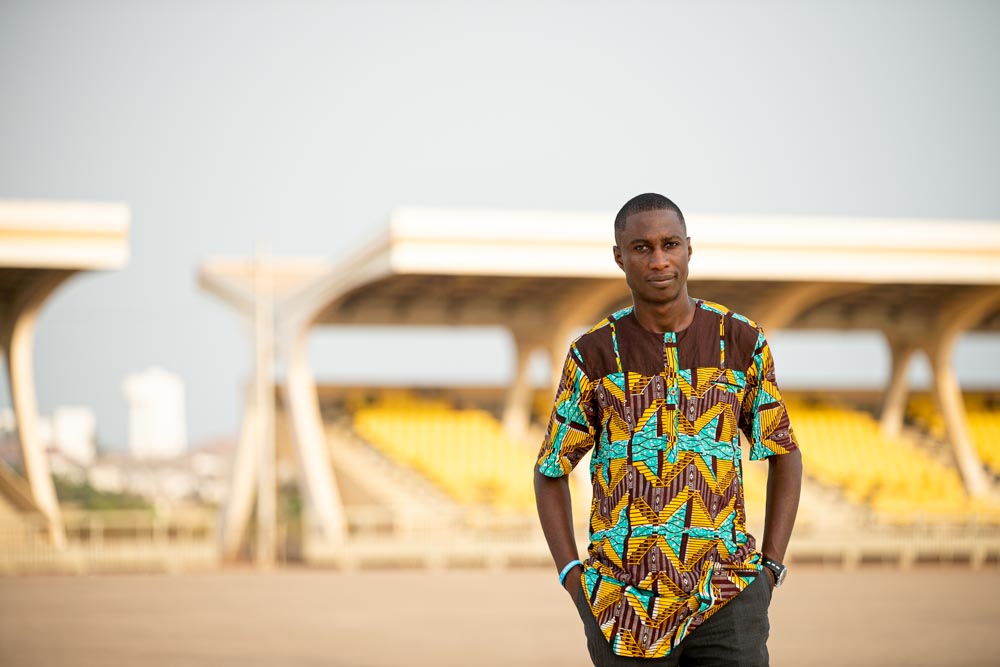Ghanaian environmentalist wins Goldman Environmental Prize

Ezekiel Chibeze, a Ghanaian environmental champion, was named the 2020 Goldman Environmental Prize winner, citing his ‘commitment to promoting good governance in the environmental sector in Ghana’ and his leadership in climate change in Africa and in the world. The Goldman Environmental Prize is the world’s largest award for environmental activists.
Chibeze joins an eminent list of former Goldman Environmental Prize winners from the African continent, including Wangari Maathai, a Kenyan activist well known for her commitment to social, environmental, and political issues; Ken Saro-Wiwa, Nigerian writer who fought for environmental justice and human rights; and recently the South African activists Makoma Lekalakala and Liz McDaid.
Through 350 Ghana Reducing our Carbon (G-ROC), the main grassroots environmental organization, Chibeze is positioned as a champion of climate justice, fighting tirelessly to end the coal power plant project of Ekumfi and raising awareness of the possibility of a zero-carbon future and the potential of renewable energy in Ghana. Chibeze’s work is a demonstration of the power of grassroots movements in the fight to end the era of fossil fuels.
About the Goldman Environmental Prize
The Goldman Environmental Prize honors grassroots environmental heroes from six regions of the world: Africa, Asia, Europe, Islands, North America, and South America. The award recognizes people who have made sustained and significant efforts to protect and improve the natural environment, often at great personal risk. The Goldman Prize sees “grassroots” leaders as people who participate in local efforts, where positive change is created through community or citizen participation. By recognizing these individual leaders, the Award seeks to inspire other ordinary people to take extraordinary actions to protect the natural world.
About Ezekiel Chibeze
Chibeze is a passionate environmentalist who works on multiple platforms to promote good governance in the environmental sector in Ghana - particularly in climate change, biodiversity, forestry, and renewable energy. He is currently the Executive Coordinator of the Strategic Youth Network for Development (SYND), a youth-focused organization that promotes the inclusion of young people in the governance of natural resources and the environment. He is a certified youth trainer on climate change and national champion for the SDGs. He is co-founder of 350 Ghana Reducing our Carbon (G-ROC), facilitator of the Youth in Natural Resources and Environmental Governance (Youth-NREG) platform, member of the national technical committee of the SDG governance framework in Ghana.
Article by Professor Kamal Salhi
